“Back again Mrs. Santos?” asked the local pharmacist.
“Can you believe it?” she replied, looking a bit tired as she flipped through her purse for her daughter’s prescription. “Maria has another ear infection. I hope this is the last one. The medication she gets really upsets her stomach.”
“I’m sorry it gives her such a hard time. Have you thought about giving her a probiotic while she’s getting treated? It should reduce her stomach ache, maybe even prevent it.” the pharmacist remarked, gesturing towards an aisle of the drug store.
– A Pharmacist Recommendation for Probiotic Use
What’s The Story?
Probiotic Basics
By now most people have heard the word probiotics. You might say they have become the gut-health wonder products of the 21st century. But what if I asked you which probiotic to take for a specific medical condition? It is not something many people consider. Did you know that just like medication, different probiotics appear to have different effects on our bodies?
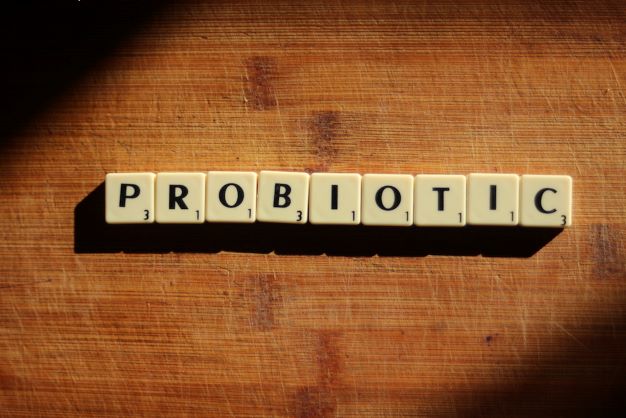

In this article we will discuss the different types of biotics: pro-, pre-, and antibiotics. Then we will outline the most effective way to take them. Finally, we will go over which medical conditions science has shown probiotic strains to be good for.
Different Types of Biotics
Are Probiotics Good for Health?
Probiotics are made of “good” bacteria. Many different types of these tiny lifeforms, known as microflora, already live within the guts of all humans. This collection is referred to as our “microbiome”. This microbiome contributes to our immune system by keeping us from getting sick. It protects us from infections by “bad” bacteria and helps us digest food.
Although they are usually bacteria, probiotics can also be yeasts or fungi. We can find them in foods like yoghurt, kefir, and kombucha. Probiotic supplements are also sold as pills, powders, and liquids. They are generally regarded as safe to use and consume by the FDA (Food and Drug Administration).
It should be noted that these helpful micro-friends are not for everyone. People who have a weak immune system or difficulty fighting infections should speak to their healthcare professional before starting a new probiotic because there is a risk of overgrowth. Even too much good bacteria can be a bad thing.
Prebiotics and Symbiotics
Newer to the scene are prebiotics and symbiotics which we won’t go into detail on here. Prebiotics create a better environment for the probiotics to live and cannot be digested by humans. Symbiotics combine prebiotics and probiotics. If you’re curious, check out the links for more information.
Antibiotics
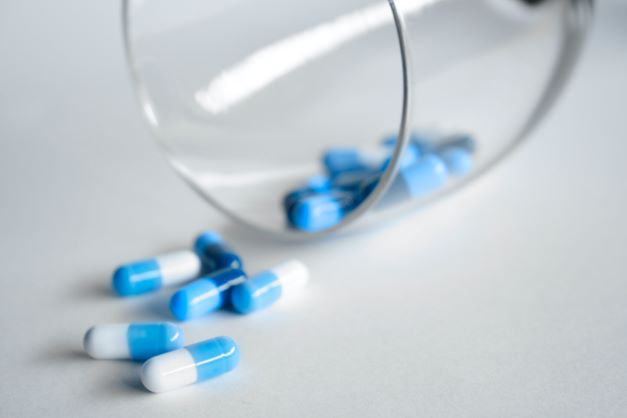

Antibiotics are used to prevent and treat infections. These medications are designed to kill the bad types of bacteria that cause sickness. Care must be taken with these powerful drugs. If used too much over a long period of time, antibiotic resistance triggers more tough bacteria to cause more serious infections. In fact, there is a medical science that researches this phenomenon called antibiotic stewardship.
How to Use Probiotics
The Best Way to Take Probiotics
When it comes to probiotics, finding the right dose can be complicated. Each strain is different and each brand has its own instructions. I recommend buying a brand that has the strain you’re looking for. Then, read the dosing instructions the manufacturer recommends. In general, if the recommended starting dose does not give you the relief you hoped for, increase how much you are using. Try to take an additional probiotic capsule or another serving of probiotic-based food.
One of the most common questions pharmacists get regarding any type of medication is ‘what is the best way to take it’?
When it comes to timing a probiotic however, there is no perfect answer. As soon as we eat something, our digestion starts breaking it down. This is true for food and medicine too. The acid in our stomachs means that many probiotics will be digested before they get a chance to do their job. Thank you for your sacrifice little buddies.
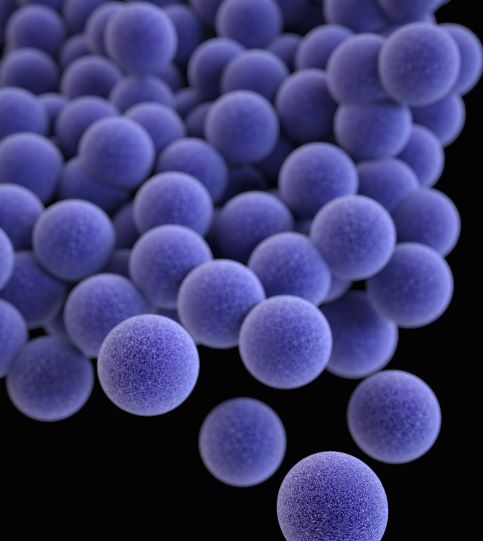

When to Take Probiotics
The data is conflicting and the industry is still working out the best way to ensure living probiotics make it to their final destination in the gut. Based on the studies looked at for this article, I recommend taking your probiotics on an empty stomach, just before a meal that contains at least some dietary fat.
What Probiotics Are Good for Us?
So, what kind of probiotic should you be using? To answer this question, several studies have researched which types of probiotics work best for specific diseases. Problems with the digestive tract currently have the best evidence for using probiotics. Therefore, this article will focus on those.
Check out the end of “Talk Nerdy to Me” for a chart that lists some common diseases and effective probiotic strains. Then, match your problem with the correct strain. Try not to be intimidated by the weird Latin names of the probiotic bacteria and yeasts. Just copy the name of the stain into your search engine. Easy peasy.
Probiotics by Medical Condition
Medical Conditions and How Probiotics Are Good for Them
Antibiotic Associated Diarrhea
When taking prescribed antibiotics to treat an infection, they can sometimes cause a disruption of the normal “good” bacterial that live in our gut. The classic symptom of this disruption is diarrhea. Studies have suggested that taking probiotics during an antibiotic treatment may reduce the likelihood of this side effect.
Take your probiotic on the first day of antibiotic therapy and continue for at least a week after your antibiotic is finished.
Gastroenteritis
This is often referred to as a stomach flu or infectious diarrhea. It is commonly caused by viruses or bacteria and sometimes parasites too. Clinical studies have demonstrated that probiotics have some ability to bolster the immune system and improve the quality of bacteria in the gut. However, severe symptoms usually require the care of a medical professional.
For gastroenteritis, start taking probiotics right when symptoms appear and continue for at least a week after the symptoms are gone.
Traveler’s Diarrhea
Travels to foreign lands are some of life’s richest experiences. However, the experience can sometimes be too rich for our insides. A new place means new local microflora. Sometimes this change in a place’s microflora may result in an upset stomach or diarrhea.
To prevent your tummy from interrupting your travels, start taking a probiotic two days before leaving and continued until you return home.
Inflammatory Bowel Disease
Inflammatory Bowel Disease (IBD) is life long and often requires significant medical attention once it begins. It comes in two broad varieties, ulcerative colitis and Crohn’s disease. There is still debate about the role probiotics play to help relieve symptoms. Several studies have shown a positive effect including a longer time between flareups and a shorter time to recover when they are used alongside standard medical treatment. Please be aware, the evidence for ulcerative colitis is better than the evidence for Crohn’s disease.
Studies recommend using a probiotic as soon as the flare-up starts and continue taking it for at least a week after the symptoms end.
Lactose Intolerance
The inability to digest dairy effects a surprising amount of the world’s adults. When the body is unable to break down lactose, the sugar in milk, people experience symptoms ranging from a stomachache and gas to diarrhea. Research points out that some bacteria can break down this sugar for us. This is the reason that people with lactose intolerance can usually eat yoghurt. The probiotics found naturally in this dairy treat may make eating some other dairy foods possible again. Other probiotics have a similar ability digest dairy without giving you discomfort.
Irritable Bowel Syndrome
This syndrome causes abdominal bloating and pain. Irritable bowel syndrome (IBS) has two types, either diarrhea predominant or constipation predominant. It depends on which symptom affects you more frequently. Please note, this is generally a diagnosis of exclusion. That means after your healthcare professional has ruled out more serious diseases, they will make a diagnosis of IBS. Once you know enough about your version of IBS, a probiotic may be your ticket to normal.
Start taking a probiotic as soon as the symptoms start and continue until the symptoms are completely gone.
Constipation
This is often a common condition that affects people at some point during their lives. The inability to go can be just as frustrating as going too much. Eventually, constipation can lead to more serious health concerns if you are backed-up for too long.
Probiotics used for constipation should be taken when symptoms start and continued until the symptoms go away.
Final Thoughts
There are many other conditions for which the use of probiotics might be helpful. There are also possible uses of probiotics for non-digestive conditions which are currently being studied. At this time, however, there is not enough evidence available to rate their effectiveness so I have not included them in this article.
Probiotics are an exciting frontier. Time and research will help us further define their abilities in the future. For now, give these recommendations a try. The goal here is to help to put control of your own health into your hands. With the advice of your medical professional, these friendly bacteria may be the boost you need.
Talk Nerdy to Me
Biology and Pharmacology
As defined by the WHO (world health organization) probiotics are “live organisms that when administered in adequate doses confer a health benefit to the host”. It is believed that as many as 10^14 microbes dwell within the human body equating to approximately 3% body mass by weight. By contrast, prebiotics are generally composed of macromolecules that are indigestible by humans but are beneficial to the growth and productivity of microorganisms in the GI (gastrointestinal) tract. Examples include fructooligosaccharides and inulin.
The proposed mechanisms of probiotic action are inhibition of bacterial adhesion, enhanced mucosal barrier function, modulation of the innate and adaptive immune systems, secretion of bioactive metabolites, and regulation of the enteric and central nervous systems.
For probiotics to exert their primary effect, they should be given in quantities large enough to survive the journey to the GI tract and colonize the host’s gut. Typically at least 5 billion CFU (colony forming units) per day is considered sufficient. Unfortunately, there is no current scientific consensus regarding a universal method of delivery and timing that maximizes the survival of probiotic colonies. This is further complicated by a lack of standardization in the industry with regards to dose, microbial substrate, and encapsulation method.
Efficacy and Safety
Current evidence suggests that probiotics are both safe for consumption and enjoy a moderate amount of efficacy. In general, strains of microflora characterized as probiotics have been given the designation of GRAS (generally recognized as safe) by the United States FDA. Moreover, multiple research sources have cited probiotics as efficacious in speeding symptom resolution or reducing disease severity of various conditions. For example, in one study, the administration of probiotics during an episode of acute infectious diarrhea reduced the duration of symptoms by one day.
It is worth noting however that there are areas for concern among vulnerable patient populations. Some clinical studies have demonstrated a predilection for bacteria taken as probiotics to acquire gene mutations found in the pathogenic bacteria they are attempting to supplant. For example, the probiotic strain Enterococcus faceium has been shown to acquire the van A gene mutation of the pathogenic bacteria VRE (vancomycin resistant enterococcus). For this reason, certain strains of probiotics may not be reasonable to recommend in the absence of a definitive diagnosis or known causative organism.
Immunocompromised patients may also be at risk for adverse events related to probiotic use. Although outwardly counterintuitive, this finding is evident in disease states which may otherwise appear to benefit from the addition of a probiotic strain. Take for example C. diff (Clostridioides difficile) infections. Patients with fulminant disease can often be described as immunodeficient and the provision of a probiotic has been shown to result in bacterial overgrowth and non-occlusive mesenteric ischemia. Therefore, currently published guidelines do not recommend probiotics for supplemental treatment despite multiple trials claiming successful implementation.
Conclusions
Probiotics appear to be a safe and effective adjunct treatment for numerous medical conditions. Evidence currently supports their use in an array of GI-related applications. However, universal adoption is marred by the lack of standardization in treatment modalities as well as limited clinical data available to enhance product selection. For many otherwise healthy patients, the potential benefits of use outweigh the risks.
In most cases, the conditions which probiotics benefit are treated using standard evidence-based regimens then supplemented by probiotics or are otherwise limited to supportive care. Perhaps the role of probiotic therapy may one day evolve to standalone care. For now, their use as adjunct treatment is appropriate. The most common negative outcome of probiotic use is the financial burden of purchasing a product that may not have an intended effect. It is apparent that additional research is well deserved on this evolving topic to further elucidate the capabilities of these wonderous microbes and further our understanding of the human microbiome.
Table: Probiotic Strain By Medical Condition
| Condition | Probiotic Strain |
| Acute Infectious Diarrhea | L. rahamnosus GG, S. Boulardii |
| Antibiotic-Associated Diarrhea | Bifidobacteria, Lactobacillus, S. boulardii |
| Cholesterol Lowing | L. ruteri, L. plantarum |
| Constipation | Lactobacillus, Bifidobacillus |
| Gastroenteritis | Lactobacillus, Bifidobacterium, Strep. thermophilus |
| Halitosis | Lactobacillus |
| Infant Cholic | L. ruteri |
| Inflammatory Bowel Disease | E. coli nissle, Lactobacillus, S. boularii, Bifidobacterium |
| Irritable Bowel Syndrome | Lactobacillus, Bifidobacterium, Strep. thermophilus |
| Lactose Intolerance | L. debrueckii (*ss-bulgaricus), Strep. thermophilus |
| Necrotizing Enterocolitis | Lactobacillus ruteri |
| Radiation-Associated Diarrhea | L. rahamnosus GG +/- Bifidobacterium bifidum |
| Travelers Diarrhea | Bifidobacterium breve, Lactobacillus, S. Boulardii, Strep. thermophilus |
As always for questions regarding the reference material cited in this article or anything else, feel free to contact us.
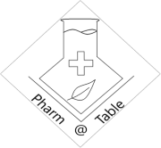
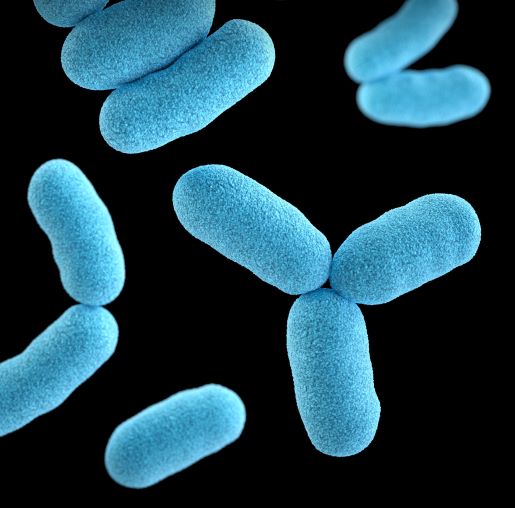
I love the content! So informative. How about women’s health? I’ve seen some information on probiotics for vaginal health as well. Can you speak to that? Thanks!
Thank you so much for taking the time to comment. I’m thrilled you liked the article. I don’t know much about the subject currently, but I’m happy to do some investigation! I’ll let you know as soon as it’s done.
Amazing article Dr. Williams! This would be a great article to share with patients. 🙂
Thank you so much for the feedback! It means more than words can express that you feel patients would benefit from this information. I hope to keep making high value content.